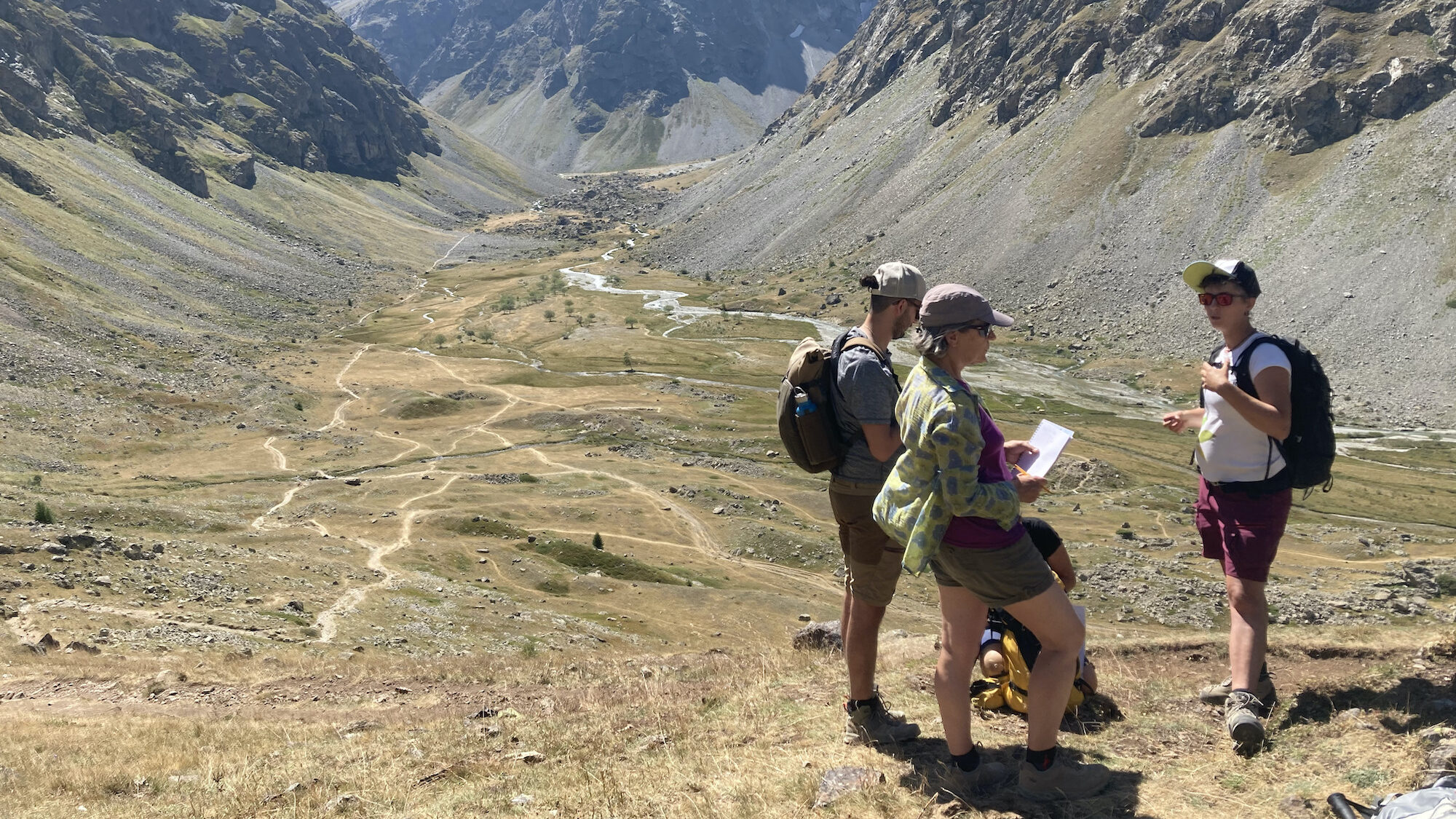Scientific eco-volunteering: opening up research in the mountains
Début du projet : 2024In the face of climate change, mountain socio-ecosystems are evolving rapidly, both in terms of ecosystems (glaciers, snow cover, fauna, flora) and human activities (tourism practices). At the crossroads of tourism diversification and ecosystem evolution monitoring, this project, the result of a joint call for projects with the Zone Atelier Alpes (ZAA), aims to put the concept of scientific tourism into practice through eco-volunteer stays.
 © Daniel Zambrano
© Daniel Zambrano
Societies and ecosystems are facing a number of challenges in terms of transition and adaptation to climate change and its consequences. In the Alps and mountainous regions, these pressures are particularly acute. The territories and societies that depend on their resources must rapidly rise to the challenge of adaptation. It is important to raise awareness beyond these regions, so that these transitions can be accompanied and supported by society.
Four challenges have been identified in this mountain context:
- Set up a monitoring system for ecosystem evolution.
- Observe the convergence of mountain visitor flows and its new users, and understand the evolution of practices.
- Propose alternatives to current tourism solutions based on dwindling resources (ice, snow).
- Fostering dialogue between science and society to involve as many people as possible in the ecological transition.
The innovative nature of the project lies at the crossroads of these challenges. The concept of scientific tourism is implemented through eco-volunteer stays involving a non-expert public, using the refuge as a place to measure and observe change in the mid and high mountains.
Three seasons of reconnaissance (2021, 2022 and 2023), identification of partners and testing within the Sentinel Shelters program have enabled us to develop scientific protocols adapted to the site, and to validate the value of the approach.
Offering tourists the chance to take part in participatory science programs in the mountains is a new way of offering a tourism product, involving the various stakeholders (researchers and mountain professionals) in their core activities, and helping to pass on the scientific method.
As part of the project, eco-volunteers will be welcomed at the Jardin du Lautaret site, trained in participatory science and accompanied in the field around the Alpe Villar d’Arène and Pavé refuges in the heart of the Ecrins National Park. The data collected using simplified scientific protocols will enable researchers to go further in their investigations.
Latest news
Show all06 May 2024 | Project life
On the trail of budding researchers
A podcast takes us on a journey to discover a research project dedicated to scientific eco-volunteering in the Écrins massif. For Silence podcast, l’esprit sauvage,…
Search Ecrins Climate and ecological transitions Populations and territories Tourism and recreational practices

